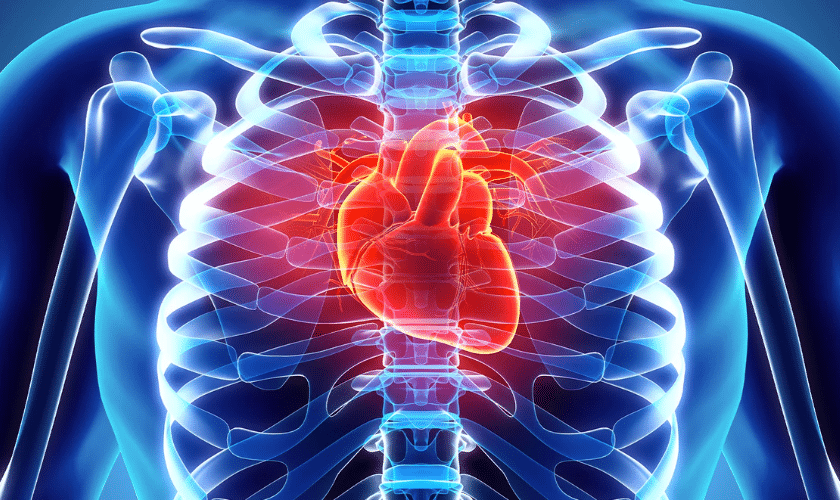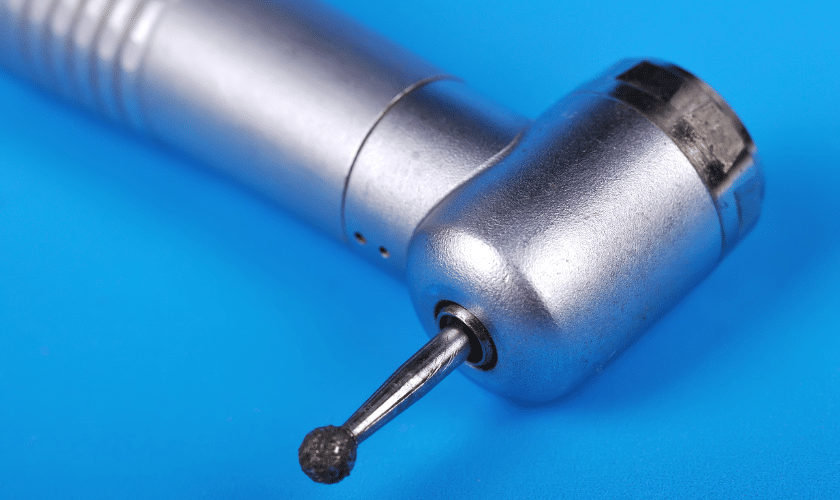
Welcome to our blog, where we dive deep into the world of cardiovascular disease (CVD) and explore the possibility of a cure. When it comes to matters of the heart, there’s no doubt that CVD is a serious condition that affects millions worldwide. But can it be cured? Well, today, we’re here to shed some light on this question and delve into the various factors at play. So buckle up because we’re about to embark on a journey through traditional treatments, lifestyle changes, emerging research, and alternative therapies in search of an answer! Get ready for some heart-pumping information ahead!
What Is Cardiovascular Disease?
Cardiovascular disease, also known as CVD, is a broad term used to describe conditions that affect the heart and blood vessels. This includes coronary artery disease (CAD), heart failure, arrhythmias, and stroke. Essentially, any problem that disrupts the normal functioning of the cardiovascular system falls under this umbrella.
One of the primary culprits behind CVD is plaque buildup in the arteries. Over time, cholesterol and other substances can accumulate on the interior walls of these blood vessels, narrowing them and restricting blood flow to the heart or brain. This reduction in blood supply can lead to chest pain (angina), shortness of breath, or even more severe complications like heart attacks or strokes.
Another contributing factor to CVD is high blood pressure (hypertension). When your blood pressure remains consistently elevated for prolonged periods, it puts extra strain on your arteries and organs. Eventually, this constant force can weaken arterial walls and increase the risk of developing various cardiovascular conditions.
It’s important to note that several lifestyle factors play a significant role in increasing one’s susceptibility to cardiovascular disease. Smoking tobacco products damages both your lungs and your vascular system – a double whammy! Additionally, leading an inactive lifestyle combined with poor dietary choices can contribute to obesity and higher levels of bad cholesterol (LDL) – two major risk factors for CVD.
Factors that Contribute to CVD
Cardiovascular disease, commonly known as CVD, is a complex condition influenced by various factors. While some of these factors are beyond our control, such as genetics and age, others can be modified through lifestyle changes. Let’s explore the different contributors to CVD.
One significant factor is high blood pressure or hypertension. When the force of blood against the artery walls remains consistently high, it puts extra strain on the heart and increases the risk of developing cardiovascular problems.
Another culprit is high cholesterol levels. Excessive amounts of LDL (bad) cholesterol in the bloodstream can lead to plaque buildup in arteries, narrowing them and hindering proper blood flow.
Smoking tobacco products is also strongly linked to cardiovascular disease. Chemicals present in cigarettes damage blood vessels and accelerate plaque formation within arteries.
Diabetes mellitus poses a considerable risk for developing CVD as well. High blood sugar levels over time can harm both large and small blood vessels throughout the body.
Obesity plays a crucial role, too, since excess weight strains the heart and leads to other risk factors like diabetes and high blood pressure.
Other contributing factors include physical inactivity, poor diet choices rich in saturated fats and processed foods, excessive alcohol consumption, stress levels, sleep disorders like sleep apnea, certain medications, or medical conditions like chronic kidney disease.
Understanding which factors contribute to CVD empowers us to take proactive steps toward prevention or management strategies. By addressing these influential elements head-on with appropriate interventions tailored to each individual’s needs, we may improve overall cardiovascular health outcomes!
Traditional Treatment Methods for CVD

When it comes to addressing cardiovascular disease (CVD), traditional treatment methods have long been the go-to approach. These methods aim to manage symptoms, control risk factors, and prevent further damage to the heart and blood vessels.
One common traditional treatment method is medication. Doctors may prescribe medications such as statins to lower cholesterol levels or beta-blockers to reduce blood pressure. These medications help regulate key factors that contribute to CVD development and progression.
In addition, lifestyle modifications play a crucial role in managing CVD. Exercise programs tailored specifically for individuals with heart conditions can improve cardiovascular fitness and overall health. Dietary changes, such as reducing salt intake and consuming a heart-healthy diet rich in fruits, vegetables, whole grains, and lean proteins, can also be recommended.
Surgical interventions are another option for treating severe cases of CVD. Procedures like angioplasty or bypass surgery can restore proper blood flow by opening blocked arteries or creating new routes for blood circulation.
It’s important to note that while these traditional treatment methods can effectively manage symptoms and slow down disease progression, they may not necessarily cure CVD entirely. That being said, they remain vital components of comprehensive care plans aimed at improving the quality of life for individuals living with this condition.
As research continues to evolve in the field of cardiology, innovative therapies that show promise in potentially curing CVD altogether are emerging. From stem cell therapy aiming to regenerate damaged cardiac tissue to gene editing techniques targeting specific genetic mutations associated with certain types of heart diseases – scientists are exploring groundbreaking avenues toward finding lasting solutions for those affected by CVD.
While we await more definitive answers on potential cures for cardiovascular disease through ongoing research efforts, it’s essential not only to rely on traditional treatment methods but also to consider alternative therapies that could complement conventional approaches.
The Role Of Lifestyle Changes In Curing Cvd
Lifestyle changes play a crucial role in the management and potential cure of cardiovascular disease (CVD). By making simple adjustments to our daily habits, we can significantly improve heart health and reduce the risk of CVD-related complications.
One key lifestyle change is adopting a heart-healthy diet. This means consuming foods low in saturated fats, trans fats, cholesterol, and sodium while prioritizing fruits, vegetables, whole grains, lean proteins, and healthy fats like those found in nuts and olive oil. Additionally, limiting alcohol consumption and quitting smoking are essential steps toward achieving optimal heart health.
Regular physical activity is another vital aspect of lifestyle changes for curing CVD. Engaging in moderate-intensity aerobic exercises such as brisk walking or cycling helps strengthen the heart muscle and improves overall cardiovascular fitness. Strength training exercises also contribute to reducing CVD risk factors by promoting weight loss and improving insulin sensitivity.
Managing stress levels through relaxation techniques such as meditation or yoga can have a positive impact on cardiovascular health. Chronic stress contributes to high blood pressure, which increases the risk of developing CVD. Finding effective ways to manage stress not only benefits mental well-being but also supports heart health.
Adequate sleep is often overlooked but plays an important role in maintaining a healthy heart. Poor sleep patterns have been linked to an increased risk of hypertension, obesity, and diabetes – all contributing factors for CVD development. Prioritizing quality sleep by establishing a consistent bedtime routine and creating a conducive sleeping environment is crucial for overall cardiovascular wellness.
Incorporating these lifestyle changes into our daily routines can prevent further progression of CVD while potentially leading to its cure over time. Remember that consistency is key when it comes to implementing sustainable habits that support cardiac health.
Emerging Research on Curing CVD
Exciting advancements in medical research are shedding light on potential breakthroughs for curing cardiovascular disease (CVD). Scientists and researchers around the world are tirelessly working to uncover new strategies and treatments that could potentially eliminate this devastating condition.
One area of emerging research focuses on the role of stem cells in repairing damaged heart tissue. Preliminary studies have shown promising results, with some patients experiencing improvements in their cardiac function after receiving stem cell therapies. This groundbreaking approach holds great promise for those suffering from CVD.
Another avenue being explored is genetic therapy. By targeting specific genes associated with cardiovascular diseases, scientists hope to develop innovative treatments tailored to an individual’s unique genetic makeup. This personalized approach could revolutionize the way we treat and cure CVD.
Additionally, researchers are investigating the use of nanotechnology in combating cardiovascular disease. Nanoparticles can be engineered to deliver targeted medications directly to affected areas within the body, minimizing side effects and maximizing therapeutic benefits.
Advancements in imaging technology also play a crucial role in understanding and treating CVD. High-resolution imaging techniques allow doctors to visualize plaque buildup and identify vulnerable regions within blood vessels before they lead to serious complications such as heart attacks or strokes. Early detection through advanced imaging can help guide treatment interventions and improve patient outcomes.
While these emerging research areas hold tremendous potential for curing CVD, it’s important to note that further studies and clinical trials are needed before these approaches become widely available. The road ahead may still be long, but there is reason for optimism as scientists continue their dedicated efforts toward finding a cure for one of humanity’s most prevalent health concerns.
Alternative Therapies for Managing and Potentially Curing CVD
- When it comes to managing and potentially curing cardiovascular disease (CVD), traditional treatment methods are not the only options available. Many individuals are turning to alternative therapies as complementary approaches to their medical treatments. These therapies focus on improving overall well-being, reducing stress, and supporting the body’s natural healing processes.
- One popular alternative therapy is acupuncture, which involves inserting thin needles into specific points on the body. This ancient practice has been used for centuries in Traditional Chinese Medicine to promote circulation and balance energy flow. Some studies suggest that acupuncture may help reduce blood pressure and improve heart function in individuals with CVD.
- Another alternative therapy gaining attention is yoga. This mind-body practice combines physical postures, breathing exercises, and meditation techniques. Regular yoga practice has been shown to lower blood pressure, decrease cholesterol levels, and improve overall cardiovascular health.
- In addition to acupuncture and yoga, herbal supplements have also become popular among those seeking alternative treatments for CVD. Certain herbs like garlic, hawthorn berry, and turmeric have shown potential benefits in reducing inflammation, improving blood flow, and protecting against oxidative stress.
- Furthermore, mindfulness-based stress reduction techniques such as meditation can be beneficial for individuals with CVD by promoting relaxation responses and reducing mental stressors that can contribute to heart disease progression.
- While these alternative therapies show promise in managing symptoms of CVD and potentially supporting its cure when combined with traditional medical treatments, it is important for individuals considering these approaches to consult with a healthcare professional before incorporating them into their routine.
While cardiovascular disease (CVD) is a prevalent and serious health condition, it is important to understand that it may not have a straightforward “cure” in the traditional sense. However, there are numerous treatment methods available that can help manage the symptoms and slow down the progression of CVD.
Traditional treatment methods such as medication, surgery, and lifestyle changes play a crucial role in improving heart health and reducing the risk of complications. These approaches are backed by extensive research and have shown significant benefits for individuals with CVD.
Moreover, emerging research has shed light on potential breakthroughs in curing CVD. Innovative therapies like stem cell treatments and gene editing techniques offer promising avenues for future treatment options. Although these approaches are still in their early stages of development, they hold immense potential for revolutionizing cardiovascular healthcare.
Additionally, alternative therapies such as acupuncture, yoga, meditation, and herbal supplements have gained popularity as complementary strategies for managing CVD. While more research is needed to establish their effectiveness conclusively, many individuals find these practices helpful in alleviating symptoms and improving overall well-being.
It’s worth noting that each person’s journey with CVD is unique. There isn’t a one-size-fits-all approach when it comes to treating or potentially curing this complex disease. It requires personalized care based on individual circumstances and needs.
Therefore, if you or someone you know has been diagnosed with cardiovascular disease or wants to reduce the risk factors associated with developing it – consult with healthcare professionals who specialize in cardiac care. They will be able to provide tailored guidance specific to your situation.
Looking For A Dentist In Phoenix, AZ
We’re so glad you’re here, and we’d love to welcome you to Dental Home Family Dentistry Phoenix! Featuring preventive care from our friendly team, this exclusive offer has everything you need to get started with us and maintain lifelong oral health. We can’t wait to meet you and your smile soon



